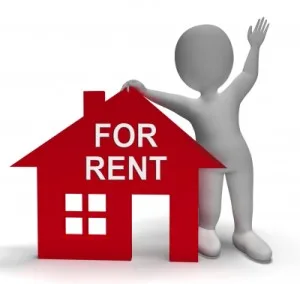In this article I discuss the tax advantages for rental properties. Whether you live in Canada, the United States, Great Britain or Australia, many countries possess similar tax advantages when it comes to rental properties. Before getting into that let’s briefly recap why rental properties can be a great investment for some people.
For centuries, owning real estate has been one of the best ways to build wealth. In fact, one of the richest men in history, John D. Rockefeller once observed that “the major fortunes in America have been made in land.”
Owning rental property has many obvious advantages. Foremost among them are earning extra monthly cash-flow and building equity in a tangible asset. I bought my rental property for precisely those reasons. But one of the least understood aspects to owning rental properties are the various tax advantages associated with that type of investment.
Tax Advantages for Rental Properties
Here are some of the big tax advantages for rental properties:
Mortgage Interest deduction. If you own a rental property, then chances are you also have a mortgage. After all, a big reason to invest in a rental property has to do with using leverage to maximize the return on investment (ROI). It’s important to remember that only the amount that goes towards the mortgage interest can be deducted, not the portion that goes towards the principal.
Property taxes can be deducted.
Insurance costs can be deducted.
Land Transfer taxes cannot be deducted in the same way as property taxes can. Instead, they are added to the purchase price and will factor into the depreciation of the building.
Utilities. If a landlord pays for utilities, then they can be deducted.
Professional Fees. If you use an accountant or a property manager, then the fees can be deducted.
Advertising. The amount spent on advertising the rental property can be deducted.
Vehicle. In certain cases a person may be able to deduct vehicle expenses. For example, if a person uses his vehicle to bring building materials and tools to perform work on a property, then it can be deducted. For two or more properties a person could claim vehicle expenses for the collection of rent. If someone wants to write-off a portion of their vehicle I suggest reading the CRA’s rules for claiming vehicle expenses.
All current and capital expenses can be deducted. Basically, the difference between a current expense and a capital expense has to do with whether or not the expense restored the property to its original condition or if it improved the property.
Here’s an example of each. A current expense, such as fixing a broken toilet can be deducted in the same year as the expense occurred. A capital expense, such as upgrading kitchen countertops to granite from laminate must be depreciated over time because the property was improved. See here how the Canada Revenue Agency (CRA) defines current and capital expense.
Some other examples of current expenses include:
Painting. Painting can be deducted as a current expense because it is part of the general maintenance of a house.
Other Repairs. Fixing a hole in a wall or a broken step or a cracked tile. All of these are examples of current expenses that can be deducted.
Grounds Maintenance Fees. If you hire a property manager or contract out the grounds keep for your rental property then the costs can be deducted as a current expense.
In contrast to current expenses, it’s important to remember that capital expenses are depreciated over time.
Depreciation. The building (but not the land) can be depreciated so it’s important to know what percentage of the purchase price is allocated to the building and what percentage will belong to the land. Most residential units are classified as Class 1 and can be depreciated by 4% per year.
Appliances can also be depreciated. They fall under Class 8 and can be depreciated by 20% per year.
For more information about the classes of depreciable property see the CRA’s webpage here.
While rental properties offer lots of deductions, the biggest thing that cannot be deducted is your own labour. So if you want the write-off, then hire out the maintenance on your rental property.
After all expenses are added up, there will either be a profit or a loss.
When there’s a profit, it gets added to the taxpayers other income and is taxed at their marginal rate.
A loss however, can be deducted from other sources of income, such as a person’s employment income, which reduces the overall tax bill.
Although there are many tax advantages for rental properties, they can be quite complicated so I would recommend hiring a certified professional accountant (CPA) to look after your tax situation.
For more detailed information about taxes and rental properties check out the Canada Revenue Agency’s webpage here.
If you’ve enjoyed this article check out my other investing articles:
The Joy of Being A Dividend Investor
Photo Credit: Photo by Stuart Miles / FreeDigitalPhotos.net

Investment Hunting
Saturday 16th of January 2016
That's an impressive list of tax deductions. Do you own any rental properties?
GenXinvestor
Sunday 17th of January 2016
Hello Investment Hunting and thanks for the comment. I currently own a duplex and I'm on the hunt for more cash-flow positive properties. Do you own any?